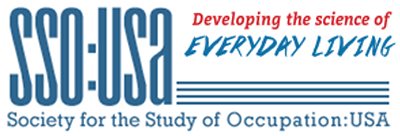2013 Student Grant Award Recipient“LATINO FAMILIES’ EXPERIENCES OF AUTISM DIAGNOSIS AND SERVICES: USING CRITICAL ETHNOGRAPHY TO EXPLORE OPPORTUNITY AS A CONCEPT FOR OCCUPATIONAL JUSTICE” Amber M. Angell, University of Southern California (2013 recipient) Statement of Purpose: Building from the occupational justice literature and the capabilities approach of Sen (1999), this study seeks to develop the concept of opportunity as a way to operationalize occupational justice. In light of disparities in autism diagnosis and services for Latino children in the U.S., this critical ethnography explores how structural and interactional processes come together to affect the daily lives of Latino families of children with autism, and how opportunities related to the diagnosis influence wellbeing and human flourishing. The study questions are: What opportunities facilitate or hinder access to an autism diagnoses and services for Latino children? What opportunities for Latino children are enabled or constrained by an autism diagnosis and services? Methods: This critical ethnography examined the experiences of 12 Latino families related to their child’s autism diagnosis and services. Participants include 13 children with autism from 12 families; 19 parents; and one grandmother. The study took place in two phases over a period of 12 months. Phase 1 (3 months) retrospectively identified the pathways to an autism diagnosis and services for 12 children through two narrative-based audio-recorded interviews with their parents. Phase 2 (9 months) built upon Phase 1 to examine the experiences of 6 of these families through additional audio-recorded interviews and video-recorded observations in home, clinic, school, and community contexts. Record review of children’s health records (Angell & Solomon, 2014) provided further triangulation of data. Analysis utilized an iterative process, moving back and forth between families’ experiences and the broader sociocultural, political economic contexts in which they occur. Results: Structural factors that hindered access in this cohort were most often seen in families’ experiences with public school systems, while their experiences with a state regional center 110 demonstrated ways that a bureaucratic system can facilitate access to services. Interactional factors included relationships with extended family members; how they viewed the child’s developmental delay had a significant impact on families. Family relationships with practitioners also influenced children’s access to services; even when parents felt children were not receiving sufficient services, some were hesitant to disagree with administrators for fear of retaliation against their nonverbal children in the form of mistreatment. An autism diagnosis brought some families closer together and provided an explanation for the child’s “misbehavior.” In other cases, parents felt that the diagnosis caused them to distance themselves from family members who were unsupportive. Discussion/Implication for OS: These findings provide a starting point for discussion about how to “operationalize” occupational justice. In this case, asking what kind of opportunities were afforded or hindered by an autism diagnosis provides a lens that foregoes the assumption that “more is better” and asks what families are actually able to do with an autism diagnosis. These findings also offer a way to capture both structural and interactional processes that contribute to health disparities, avoiding a deterministic or individualistic lens by focusing on daily family experience (Angell, 2012). Key words: Occupational justice, Opportunity, Autism |
